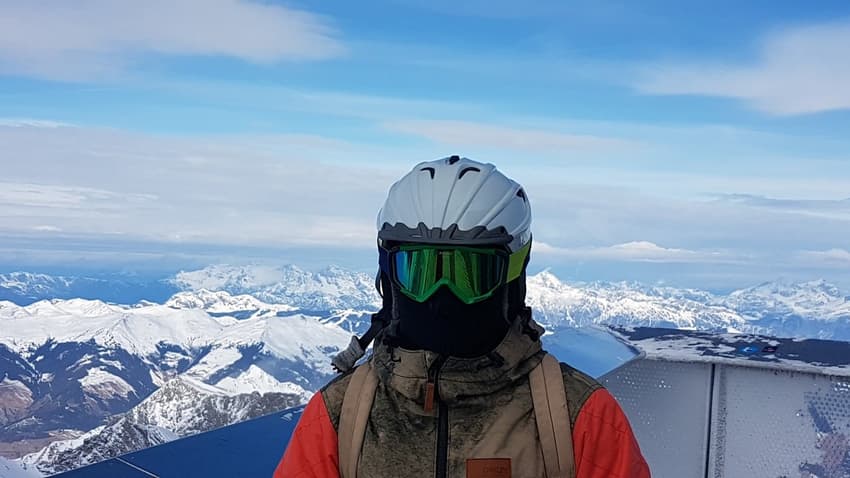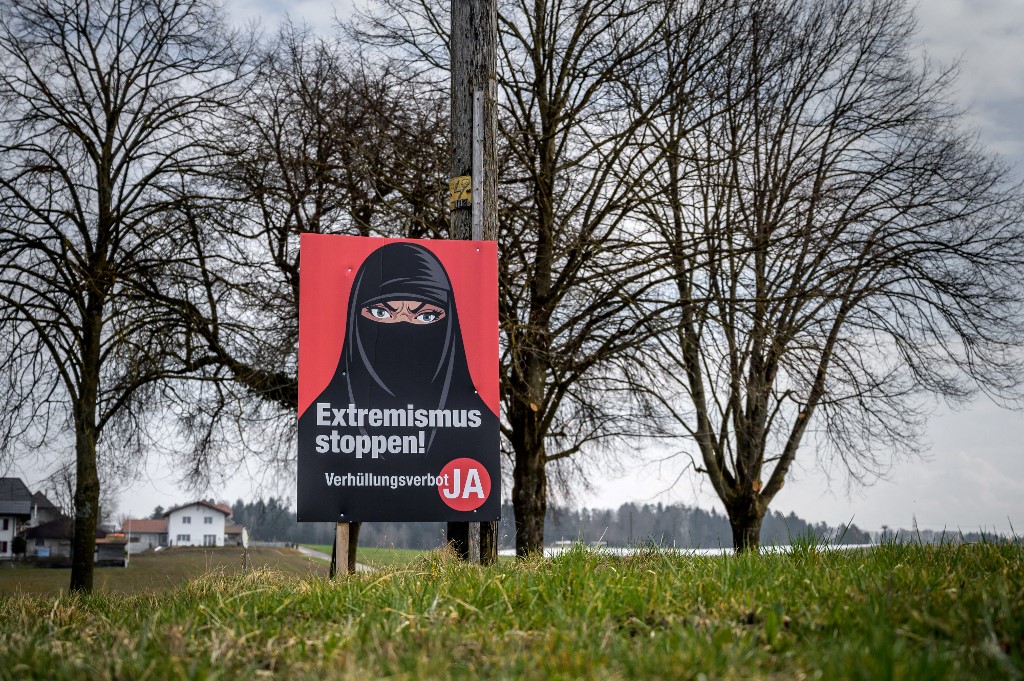Switzerland passes ban on face coverings in public but what happens next?

The National Council voted on Wednesday to pass a ban on face coverings in public places in Switzerland, such as burqas worn by some Muslim women.
The approval by the lower house of the parliament happened after the upper chamber, the Council of States, had accepted this move earlier.
It came after a nationwide referendum in March 2021, when a narrow majority (51 percent) of Swiss voters endorsed the ban.
While outlawing all kinds of face covers is not specifically directed at Muslim women, many believe the rule intends to target the Islamic niqab (a piece of clothing that covers the face except for eyes) or burqa (a full-body veil that covers the body and face).
Even though the proposal, "Yes to a ban on full facial coverings" did not mention the burqa or the niqab, campaign posters of the right-wing Swiss People’s Party (SVP), which spearheaded the referendum, portrayed a fully veiled Muslim woman, and carried a ‘Stop extremism’ slogan.

The SVP campaign poster. Photo by Fabrice COFFRINI / AFP
READ ALSO: What is Switzerland’s ‘anti-burqa’ initiative all about?
The government opposed the ban on the grounds that it would serve to “trivialise the xenophobic and racist atmosphere towards Muslim women.”
All the major parties (other than the SVP) had also spoken against the ban, forming a committee to oppose this move.
“Clothing regulations have no place in the Federal Constitution. The initiative tackles a false problem, ignores existing rules and stokes social tensions. In addition, it intrudes on private life and does not take into account cantonal disparities. Politicians from all major parties therefore oppose this populist proposal”, the committee wrote on its website at the time.
Catons of Ticino and St. Gallen already have such a ban on their territories.
What will happen now?
The measure, which will likely enter into force from 2024, prohibits covering the nose, mouth and eyes in all venues accessible to the public — not just the burqa, but everything else that conceals the face.
Anyone caught breaking this law, could be fined up to 1,000 francs.
There are, however, some exceptions to the rule.
If, for instance, you are on a ski slope in the winter, you will be allowed to wear a hat that covers your head and parts of face (but you should absolutely not walk into a bank dressed this way).
The exemption also includes religious ceremonies in churches and temples; traditional celebrations (such as carnivals, where participants wear masks); and other artistic presentations where disguises are required.
Also, if you need to wear a medical mask (as was the case during the Covid pandemic), that is allowed as well.
Within Europe, Switzerland's neighbours France and Austria have banned full face coverings, as have Belgium, Bulgaria and Denmark.
Several other European countries have bans for particular contexts, such as in schools and universities.
Comments
See Also
The approval by the lower house of the parliament happened after the upper chamber, the Council of States, had accepted this move earlier.
It came after a nationwide referendum in March 2021, when a narrow majority (51 percent) of Swiss voters endorsed the ban.
While outlawing all kinds of face covers is not specifically directed at Muslim women, many believe the rule intends to target the Islamic niqab (a piece of clothing that covers the face except for eyes) or burqa (a full-body veil that covers the body and face).
Even though the proposal, "Yes to a ban on full facial coverings" did not mention the burqa or the niqab, campaign posters of the right-wing Swiss People’s Party (SVP), which spearheaded the referendum, portrayed a fully veiled Muslim woman, and carried a ‘Stop extremism’ slogan.

READ ALSO: What is Switzerland’s ‘anti-burqa’ initiative all about?
The government opposed the ban on the grounds that it would serve to “trivialise the xenophobic and racist atmosphere towards Muslim women.”
All the major parties (other than the SVP) had also spoken against the ban, forming a committee to oppose this move.
“Clothing regulations have no place in the Federal Constitution. The initiative tackles a false problem, ignores existing rules and stokes social tensions. In addition, it intrudes on private life and does not take into account cantonal disparities. Politicians from all major parties therefore oppose this populist proposal”, the committee wrote on its website at the time.
Catons of Ticino and St. Gallen already have such a ban on their territories.
What will happen now?
The measure, which will likely enter into force from 2024, prohibits covering the nose, mouth and eyes in all venues accessible to the public — not just the burqa, but everything else that conceals the face.
Anyone caught breaking this law, could be fined up to 1,000 francs.
There are, however, some exceptions to the rule.
If, for instance, you are on a ski slope in the winter, you will be allowed to wear a hat that covers your head and parts of face (but you should absolutely not walk into a bank dressed this way).
The exemption also includes religious ceremonies in churches and temples; traditional celebrations (such as carnivals, where participants wear masks); and other artistic presentations where disguises are required.
Also, if you need to wear a medical mask (as was the case during the Covid pandemic), that is allowed as well.
Within Europe, Switzerland's neighbours France and Austria have banned full face coverings, as have Belgium, Bulgaria and Denmark.
Several other European countries have bans for particular contexts, such as in schools and universities.
Join the conversation in our comments section below. Share your own views and experience and if you have a question or suggestion for our journalists then email us at [email protected].
Please keep comments civil, constructive and on topic – and make sure to read our terms of use before getting involved.
Please log in here to leave a comment.